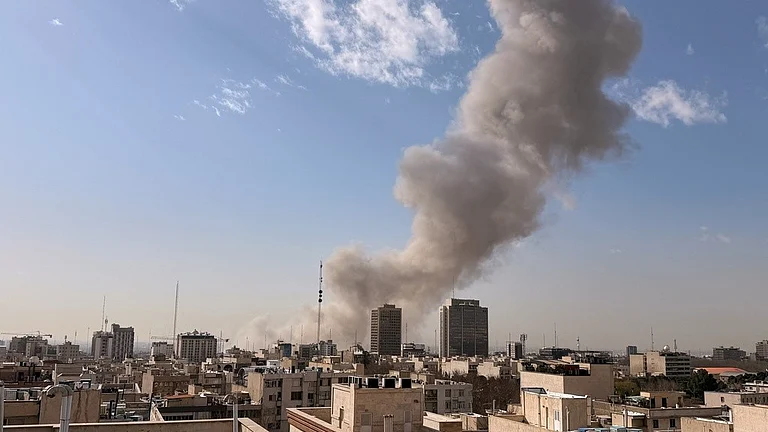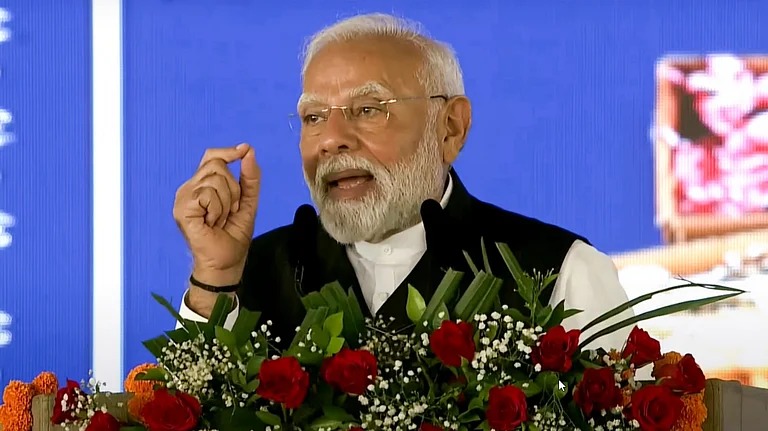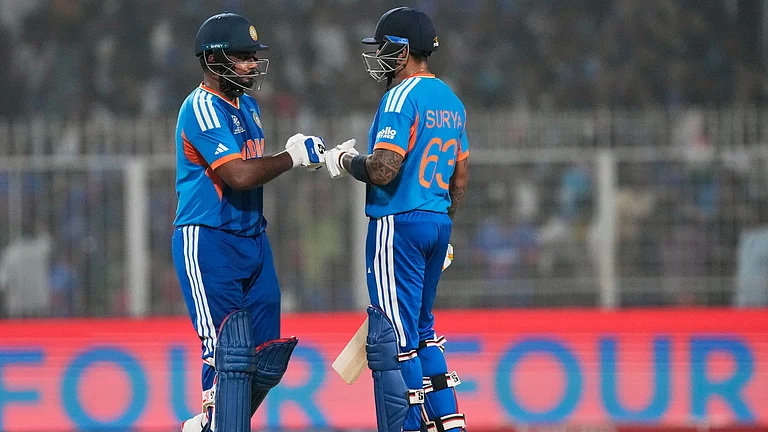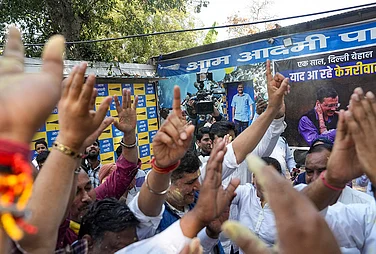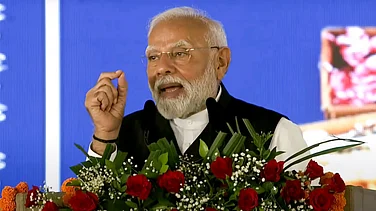Tscholhuma roshay, roshay
Upset with me, you have left me
Walo myani poshay madano
Come to me, my sweet beloved
Tscholhuma
You have left me
Summers in Jammu are cruel and unrelenting, but there was a literal silver lining that shone bright from the moon that peeped through the window in my room. My mother’s voice rang through the eerie silence of the night. Tscholhama roshay, roshay… she sang and thumped me lightly to put me to sleep, while the ceiling fan laboured on. This is the earliest memory of my childhood, the lilting voice of my mother and melancholia of the lyrics that are subscribed to the greatest Kashmiri poet Habba Khatoon.
Habba Khatoon is believed to have written scores of songs for her jailed husband, the Muslim ruler Yusuf Shah Chak, who was hurled into a prison by Mughal emperor Akbar while being made to believe he was invited for a fair round of negotiations. Till today, Akbar’s cozenage rings through the minds of Kashmiris who believe Delhi has never done justice to Kashmir.
ALSO READ: Kashmir: This Isn’t A Postcard Series
Habba Khatoon’s words have remained a constant companion while I negotiate the crests and troughs of my own existence that have now taken shape as a lullaby, which I sing to put my daughter to sleep every night; I am merely passing this inheritance to the next generation.
Chandhara is a sleepy village in Pampore, the saffron capital of India. Khatoon is believed to have been born here. In Anantnag town, about 35 km from Chandhara, I met Rubaiyya aunty. Anantnag exists in a state of perpetual entropy. Every year, the dirty lanes keep shrinking; the traffic keeps burgeoning; and deafening noises arising from busy marketplaces are momentarily silenced by occasional gunfire.
Rubaiyya aunty tried to teach me how to love god. Following the footsteps of all great teachers, she practiced what she wanted to preach. She kept moving a little rosary between her fingers with quiet murmurings on the prayer mat. Everything about her existence was an extension of her love for god. Her student, though, remained untouched by the aura of her spirituality. I remained forever an agnostic.
During my trip to Anantnag in 2015, she told me to visit the Bumzuva Cave and Temple, maintained by the Archaeological Survey of India. It is situated on KP Road that takes millions of tourists every year to the famed hill station, Pahalgam. Legend says that Bumzuv was a Hindu sage, who converted to Islam in the autumn of his mortal existence. Now an asthan (retreat) and the cave exist together at the top of the hillock on the highway, exemplifying Kashmir’s multicultural past. I climbed almost 100 steps to reach the famous cave where the saint practiced meditation for a number of years. The heavy iron gate has rusted in places where the paint has peeled off. I opened the gate with the expectation of finding ‘the true path to bliss’. There is nothing inside, except for a lonely Shivling bearing very obvious phallic signs with some dried flower petals around it. I stood there for a long time at the inner “sanctum sanctorum”. While I wanted to click pictures, there was hardly any light inside the cave. Perhaps, it is naturally designed to let only ‘nirvana’ enter for a few chosen ones. It was blissful inside the cave, and the chaos in my mind came to a momentary still. There was hardly any time at hand, but I decided to visit again next year during the great Aishmuqam festival, to stay at the cave for a day and do what is best for my soul – nothing.
ALSO READ: Routes Of Grief: Two Translations
Many years later, I am here again. Rubaiyya aunty is a grandmother again. Her son Majid is a father now. The lanes in Anantnag have shrunk further. The scum on the open drains smells disgusting. However, the majestic hillock that I used to see from the first floor of her house is as green as ever. The living room has been refurnished and the little Zoonie (Majid’s daughter) plays around, raising a never-ending cacophony. While I am preparing to sleep after a sumptuous dinner, Rubaiyya aunty picks up little Zoon and puts her to bed in the next room.
Tscholhama roshay, roshay
Walo myani poshay madano
She sings softly to Zoon; her voice is feebler than that of my mother though her locution is in impeccable Kashmiri. I am being lulled to sleep while over a 1,000 of Facebook friends have gone berserk about a newly released film. There is a lot of blame game, and the well-entrenched Kashmiri prejudice is on display. Someone writes that this film has exposed a deep valley of mistrust between Pandits and Muslims in Kashmir.
ALSO READ: Kashmir: Of ‘Stories’ And Friends
Wal weis gaswai babrai,
Let us go, friend, to gather basil,
Chok looi namo loole tabri
Wounding my heart with the axe,
Zah na aak myani khabrai
Disdains he even to inquire of me,
Walo myani pooshay madno
Come, O Come, my flowery Cupid.
Rubaiyya aunty is still singing the poem by Habba Khatoon that is a conversation with her friend. The poetess wants her friend to accompany her to collect basil. She laments that her lover has broken her heart, and has not even bothered to inquire about her well-being. Rubaiyya aunty’s voice is working like a magic potion to my ears. I can barely keep my eyes open. I have to leave tomorrow; my heart is brimming with love, while the politics of Kashmir is yet to arrive.
(While this is a true account, names of characters have been changed to protect identity)
ALSO READ
Amit Bamzai is a pune-based kashmiri entrepreneur with deep-rooted interests in kashmiri literature and music







